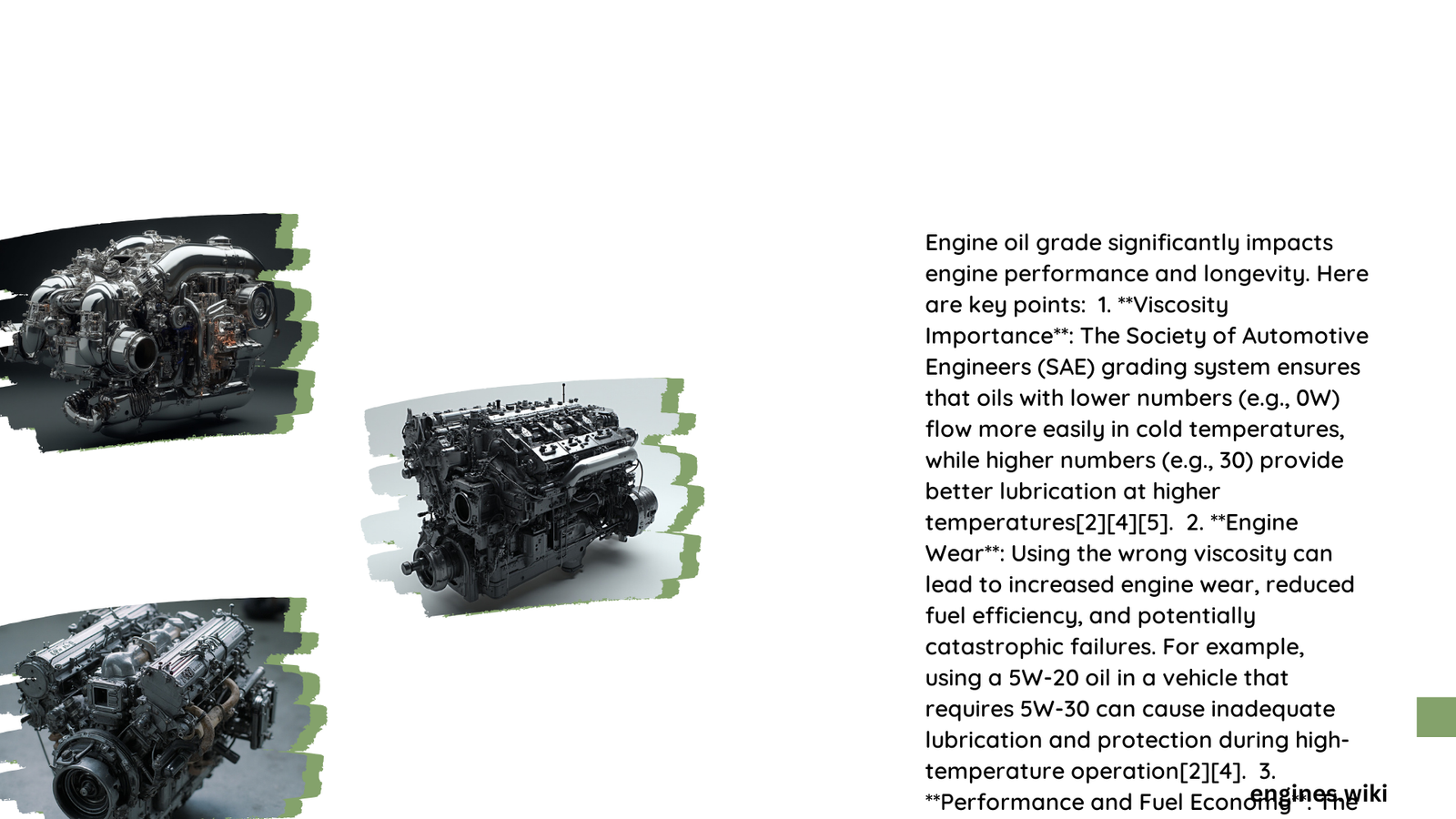Does Engine Oil Grade Matter: Understanding Critical Performance Factors
Summary Overview
Engine oil grade is not just a technical specification but a crucial determinant of your vehicle’s performance, protection, and longevity. Different viscosity grades impact engine wear, fuel efficiency, temperature tolerance, and overall mechanical health. Selecting the right oil grade can prevent premature engine damage, optimize fuel consumption, and ensure smooth operational performance across diverse driving conditions.
What Determines Engine Oil Performance?
How Does Viscosity Impact Engine Protection?
Engine oil viscosity directly influences the protective film’s thickness and stability. Lower viscosity oils (5W-30) provide:
– Faster oil circulation during cold starts
– Reduced friction at low temperatures
– Improved fuel efficiency
Higher viscosity oils (10W-40) offer:
– Enhanced protection under high-temperature conditions
– More robust lubricating film
– Better performance in heavy-duty cycles
| Oil Grade | Low Temp Performance | High Temp Protection | Recommended Use |
|---|---|---|---|
| 5W-30 | Excellent | Good | Moderate Climate |
| 10W-40 | Good | Excellent | Hot Conditions |
Why Do Manufacturer Specifications Matter?
Vehicle manufacturers specify precise oil grades based on:
– Engine design
– Operational temperature range
– Mechanical tolerances
– Performance expectations
Consequences of Incorrect Oil Grade:
– Accelerated engine wear
– Reduced fuel efficiency
– Potential warranty invalidation
– Increased maintenance costs
What Factors Influence Oil Grade Selection?
Climate Considerations
- Cold Regions: Prefer lower viscosity oils (0W-30, 5W-30)
- Hot Regions: Recommend higher viscosity oils (10W-40, 15W-40)
- Mixed Climates: Multi-grade oils provide versatile performance
Vehicle Age and Mileage
- New Vehicles: Follow manufacturer’s exact specifications
- Older Vehicles: May require slightly different viscosity
- High Mileage Vehicles: Consider specialized high-mileage formulations
How to Choose the Right Engine Oil?
Practical Selection Steps
- Check vehicle owner’s manual
- Verify API service classification
- Consider driving conditions
- Consult professional mechanics
- Review manufacturer recommendations
Technical Insights into Oil Performance
Viscosity Measurement Metrics
- SAE Viscosity Ratings: Standardized measurements
- Temperature Sensitivity: Critical performance indicator
- Additive Packages: Enhance base oil characteristics
Cost and Availability Considerations
Economic Perspectives
- Slight price variations between grades
- Long-term savings through proper selection
- Quality trumps cost-cutting
Expert Recommendations
Best Practices
- Regular oil changes
- Use manufacturer-recommended grades
- Monitor oil condition
- Consider synthetic options for enhanced protection
Conclusion
Selecting the right engine oil grade is a nuanced decision involving multiple technical and practical considerations. While seemingly complex, understanding these factors ensures optimal vehicle performance and longevity.

